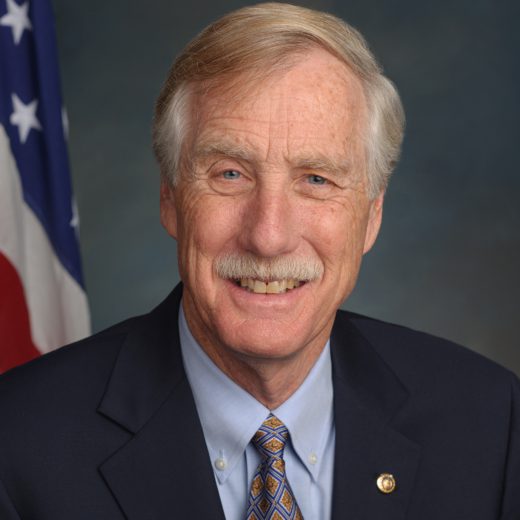Regional System Plan, ‘Grid of the Future’ panel highlight a grid in transition at 2021 public meeting

In his keynote address to the 2021 Regional System Plan public meeting, held virtually on October 6, United States Sen. Angus King, I-Maine, didn’t spend a lot of time making the case for transitioning to a cleaner grid. Climate change, he said, is a “force multiplier of national insecurity around the world,” that will exacerbate “migration, famine, drought, all the things that cause conflict and war,” making the need for a cleaner grid a foregone conclusion.
“Now the question is,” he said, “How do we do it?”
For the next few hours, New England stakeholders, including members of the Planning Advisory Committee (PAC), leaders from ISO New England, and a panel of industry experts talked about the challenges of building and maintaining a reliable grid that will soon be dominated by renewable energy resources. It was a fitting discussion for a meeting that featured the final PAC review of the 2021 Regional System Plan (RSP21)—the biennial report that details New England’s power system needs for the next 10 years—and a panel discussion: “Grid of the Future: Preparing and Responding to Extreme Events.”
Regional System Plan 2021
Carissa Sedlacek, director of Planning Services, System Planning, began leading development of the 2021 RSP in spring 2020. In response to stakeholder feedback, the 2021 RSP is briefer overall; it includes hyperlinks to the ISO website for existing information, allowing more room in the report itself for exploration of emerging and time-sensitive issues. RSP21, which goes to the ISO New England Board of Directors for final approval later this fall, discusses:
- Forecasts of annual electric energy use and peak demand that consider the impacts of expanded electrification in the heating and transportation sectors.
- The transformation of the grid, and the physical and structural challenges posed by the interconnection of more variable energy resources, including wind, solar, and batteries.
- How careful planning and wholesale market improvements can facilitate the grid’s transformation and mitigate challenges with resource adequacy in the longer-term.
- The transmission development needed to safely and reliably interconnect the influx of renewable resources onto the grid.

Sedlacek noted the increasing importance of studying the power system beyond the 10-year planning horizon, and highlighted three studies—the Future Grid Reliability Study, the 2050 Transmission Study, and the Transmission Planning for the Clean Energy Transition (TPCET)—that are doing just that. She also emphasized the criticality of thinking outside the box as we look to the future.
“We have to think differently, and use our models to test the waters,” Sedlacek said. “We need to bring creativity to how we’re working on this.”
Maintaining reliability through extreme events
Philip Shapiro, who recently retired from the ISO New England Board of Directors after 11 years, moderated the panel discussion on extreme events. Guest panelists were:
- Jim Robb, CEO, North American Electric Reliability Corporation (NERC)
- Bill Magness, former CEO, Electric Reliability Council of Texas (ERCOT)
- Charlotte Ancel, vice president, Regulatory Strategy, Avangrid
- Debra Lew, associate director, Energy Systems Integration Group (ESIG)
Resilience, risk tolerance, and resource adequacy were key topics as panelists discussed how to maintain grid reliability in the face of increasingly frequent extreme weather events in all regions of the country. The fact that volatile weather is increasing at the same time the grid is becoming more weather-dependent is “adding to the complexity of how we model and plan,” Robb said. It’s also adding to the need for increased coordination, something Lew referenced in her vision of “a national network that connects the country’s generation and loads, not just regional neighbors.”
Sen. King thanked ISO New England president and CEO Gordon van Welie and the ISO for providing leadership at this critical time in the region’s energy history, noting it will impact generations to come.
“We need your ideas, we need your expertise,” he said. “We want to get it right. This is an incredibly important process we are involved in that is going to mean a tremendous amount to our children and grandchildren.”
Remembering Michael “Mike” Henderson

Board member Vickie Van Zandt offered a heartfelt tribute to the late Michael “Mike” Henderson, ISO New England’s Director of Regional Planning and Coordination, who was “at the heart of the regional and interregional planning process” from the late 1990s until his passing in May of 2021. He was known in the industry as a generous mentor to young engineers, and was named a Fellow of the IEEE in 2016. The 2021 Regional System Plan is dedicated to him.
“He gave so much to the industry, and to each of us,” Van Zandt said. “He is deeply missed by many.”
- Categories
- Recent Publications & Events
- Tags
- planning advisory committee, regional system plan



